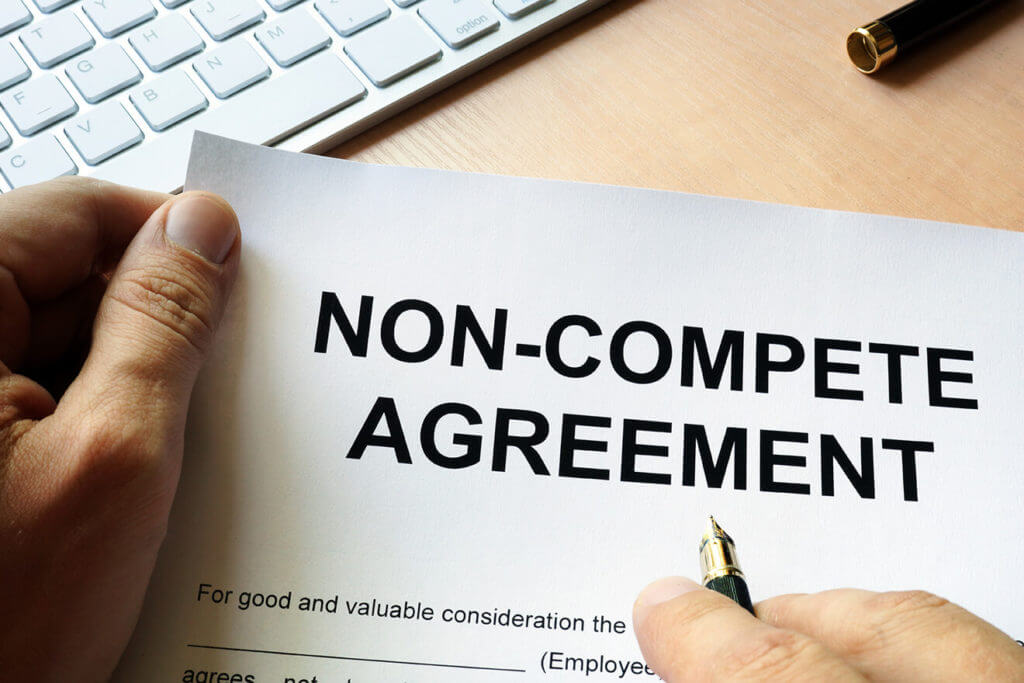Sep 22 2017
Employers sometimes ask or even require new employees to sign non-competition (or non-compete) agreements as a condition of employment. Because these agreements typically continue in effect after the employment ends, a non-compete could affect an employee’s ability to find another job.
The law on non-competes is one area in which state law varies widely. California, for example, does not allow non-competes. That, unfortunately, is not the law in Connecticut. So what is Connecticut law on non-compete? Can a Connecticut employer sue a former employee for violating a non-compete agreement? And should an employee ever sign a non-compete agreement?
What is a Non-Compete?
A non-compete agreement is a contract between you and your employer. It may be presented to you at the time you are hired or after you’ve been hired. By signing a non-compete, you may be promising that, subject to certain conditions, you will not work for a competitor of your employer after your employment ends.
Non-competes can cause real problems for employees. Consider this example: Jeremy starts working at Company X, a software development company in New Haven. Before it would hire him, Company X required Jeremy to sign a non-compete agreement, in which he promised not to work for a competitor of Company X for two years. Thinking that he would have a secure job for years to come, Jeremy signed the agreement. But after a few months at Company X, Jeremy started to dislike the job, and he wanted to explore his professional options. Eventually, he received an offer from Company X’s competitor, Company Y. When he tried to leave Company X and join Company Y, though, Company X sued Jeremy, claiming that Jeremy’s work for Company Y violated his non-compete.
Legal Requirements for a Non-Compete Agreement
According to Connecticut law, a non-compete is only enforceable against a former employee if it is “reasonable.” What is “reasonable” for a non-compete is determined through a five-part test. The parts are:
- The duration of the restriction. Generally speaking, longer restrictions are harder to enforce. But it is not unusual to find restrictions of a year or even longer, depending on the circumstances.
- The geographic area covered by the restriction. Generally speaking, the greater the area covered by the non-compete, the less likely it is to be found “reasonable” and thus enforceable. A non-compete that covers just New Haven is likely more reasonable than one that covers all of Connecticut.
- Whether the restriction prevents the former employee from pursuing his or her occupation and earning a living.
- Whether the protection afforded to the former employer is fair and justified under the circumstances.
- Whether the interest of the public is adversely affected by the restriction.
If a non-compete is unreasonable under any one of the five parts, then it is unenforceable in Connecticut. Non-competes, then, can be too broad to be “reasonable” and, therefore, enforceable, but they can also be enforceable in Connecticut if the courts find them to be “reasonable.”
Should You Sign a Non-Compete?
Before signing any document that affects your employment or your right to work, including a non-compete agreement, you first should speak with an experienced employment lawyer to learn what your rights are and what obligations the contract may impose on you.
For more than 40 years, the employee rights lawyers at Garrison, Levin-Epstein, Fitzgerald & Pirrotti, P.C. have been helping workers across Connecticut with their legal matters. Contact us today for an evaluation of your situation.
Posted by Garrison, Levin-Epstein, Fitzgerald & Pirrotti, P.C. in Employment Law
Tagged non-compete agreements









